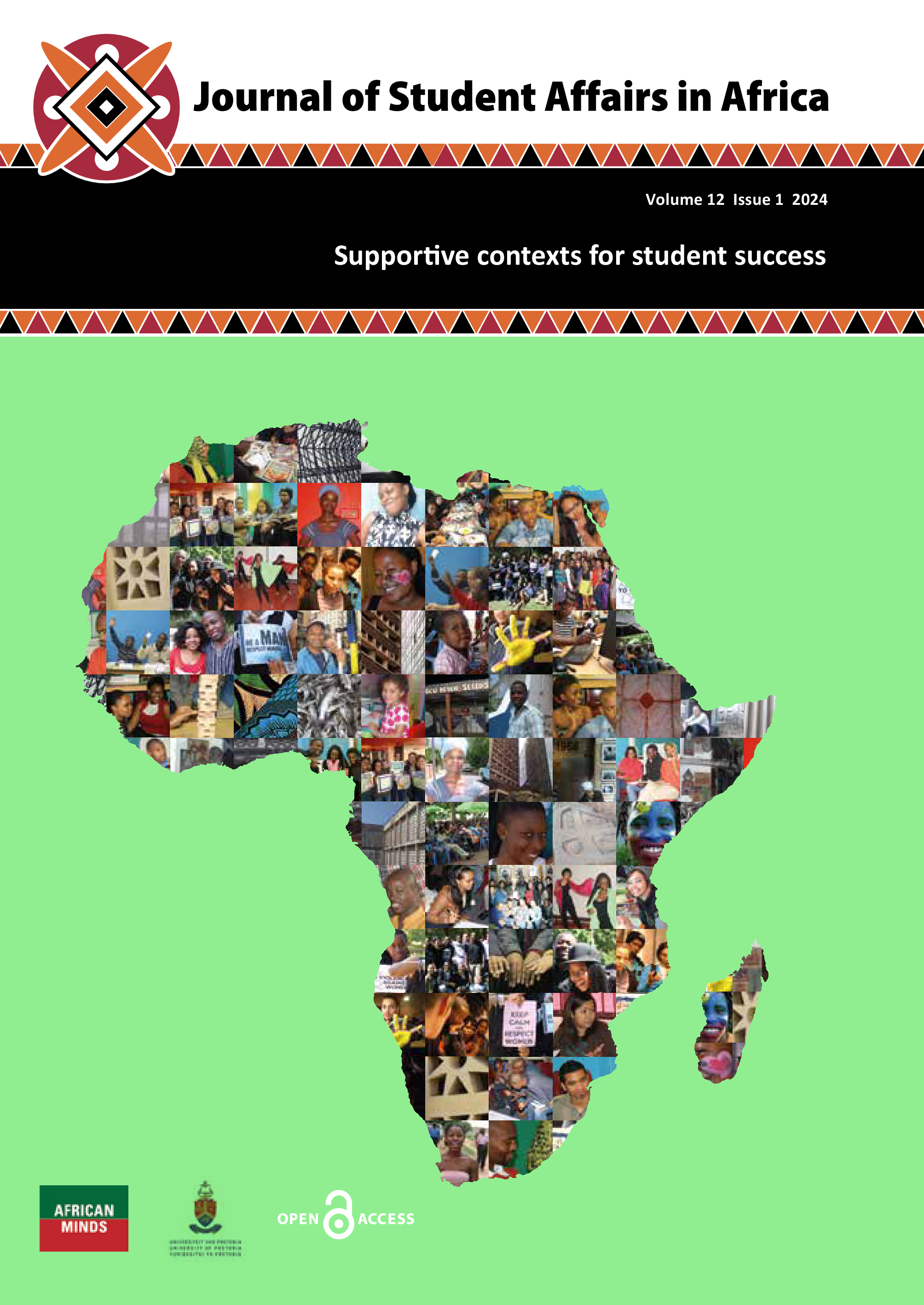Reflective perspectives of residence heads’ experiences and responses during COVID-19 at a Free State university, South Africa
DOI:
https://doi.org/10.24085/jsaa.v12i1.4322Abstract
The COVID-19 pandemic affected higher education institutions negatively, especially departments such as Students Affairs at the University of the Free State (UFS) in South Africa. When the national lockdown was announced on 23 March 2020, some students were already in recess and had vacated their residences. Students that had remained were given 72 hours to vacate their residences. By 26 March 2020, the residences were locked, and only a few international and graduate students remained. These changes affected the functioning of residence heads because they had to assume different roles. This reflective article provides perspectives on the experiences and responses of residence heads during the different levels of the COVID-19 lockdown in South Africa and recommendations for future practice and responses of the participating residence heads. The article uses reflective scholarship of practice as a methodology and incorporates Schön’s (1987) reflection as knowing-in-action and further draws on Luescher’s (2018) template for the structure and key components of reflective practice. A focus group discussion was also done to elicit more data from participants. The findings indicate that residence heads experienced anxiety and fear related to their students, families, and jobs during the different lockdown levels. The responses show that effective communication with students and university stakeholders during all levels of the lockdown was key, although confusing and conflicting at times. Most available studies have focused on the experiences and responses of students, teaching and learning, and institutions, but only a few on residence heads during COVID-19. This study provides not only an account of the experiences and responses of residence heads but also recommendations for future residence head practice in student affairs and institutions during similar times of crisis.
Downloads
Published
Issue
Section
License
Copyright (c) 2024 Mpho P Jama, Pulane Malefane

This work is licensed under a Creative Commons Attribution-NonCommercial-ShareAlike 4.0 International License.
Authors who publish with this journal agree to the following terms:
Authors retain copyright and grant the journal right of first publication with the work simultaneously licensed under the Creative Commons Attribution Share-alike 4.0 International License that allows others to share the work with an acknowledgement of the work's authorship and initial publication in this journal.
Authors are able to enter into separate, additional contractual arrangements for the non-exclusive distribution of the journal's published version of the work (e.g., post it to an institutional repository or publish it in a book), with an acknowledgement of its initial publication in this journal.
Authors are permitted and encouraged to post their work online (e.g., in institutional repositories or on their website) prior to and during the submission process, as it can lead to productive exchanges, as well as earlier and greater citation of published work (See: The Effect of Open Access).


